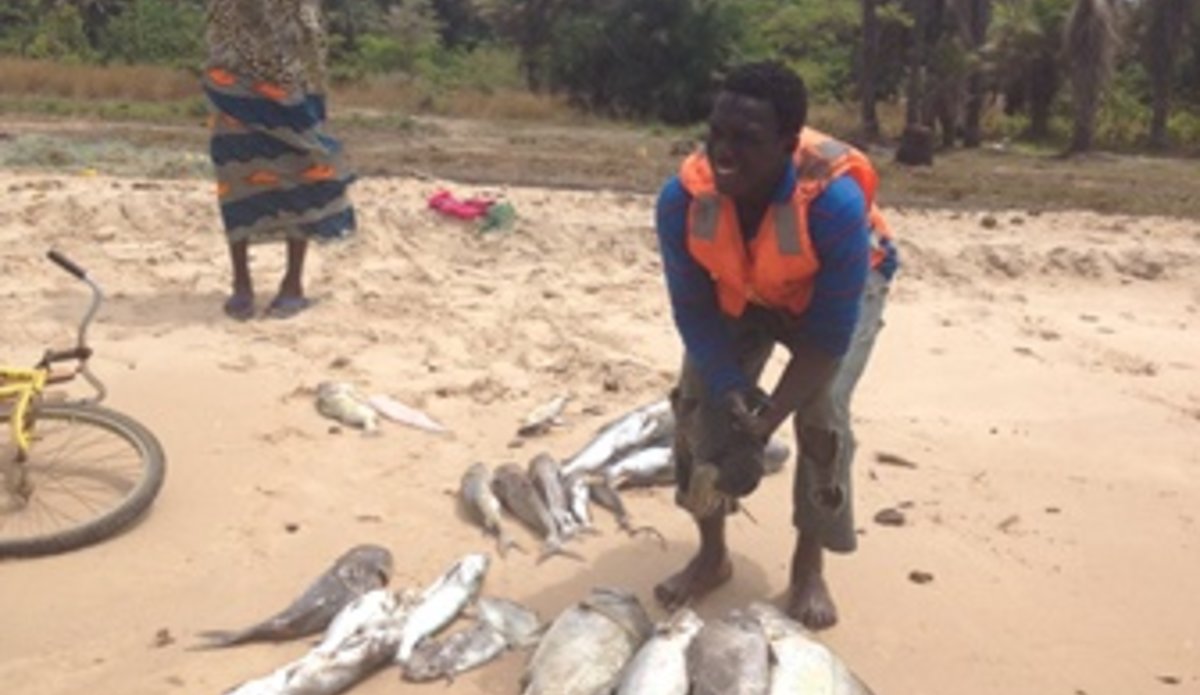Malnutrition may result from governmental instability and climate change
03 June 2015 - In reaction to the launch of 2015 State of Food Insecurity in the World (SOFI) Report, the Special Representative of the Secretary-General of the United Nations (SRSG) for Guinea-Bissau, Miguel Trovoada, said Wednesday in Bissau that political stability is essential for development. "In a society with permanent instability it is very difficult to promote actions that can lead to development and subsequently to poverty reduction."
"And this is essentially the core of the UN mandate entrusted to this mission here in Guinea-Bissau (UNIOGBIS), to work for the maintenance of a climate of stability and peace, that enables and promotes the conditions for economic development, social progress and well-being of the entire population, "he added".
The report on the State of Food Insecurity in the World 2015 (SOFI), launched on May 27 in Rome, Italy, by the United Nations Food and Agriculture Organization (FAO), the International Fund for Agricultural Development (IFAD) and the World Food Programme (WFP), highlights that there is a close relationship between development, stability and peace.
SOFI says that the number of people suffering from malnutrition in the world decreased to 795 million, this is less than 216 million in 1990 to 1992, or 1 in 9 individuals. In developing countries, reads the document, the prevalence of malnutrition fell to 12.9% of the population compared to 23.3% recorded a quarter century ago, and that 72 of 129 developing countries have achieved the goal of the Millennium Development Goals (MDGs), which consists in halving the prevalence of malnutrition in 2015.
West Africa was one of the regions that made major progress, despite the difficult environment, marked by extreme weather events, climate change, disasters, financial crisis, political instability and internal disturbances, which are the key challenges. However, Guinea-Bissau,
Is one of the countries in the region that failed to bring down the number of Guineans victims of malnutrition - close to 20 per cent of the population.
The manager and specialist of Community Development and Secretary-General of the Farmers' Federation KAFO, Sambu Seck, whose organization brings together about 27 000 farmers of 10 socio-professional associations, agrees that governmental instability of recent years has contributed to the deepening of poverty in Guinea Bissau, "because you cannot develop the agricultural sector without having political stability on a long-term. For Sambu Seck, the country "is in a worrying food deficit situation".
"If we look in to the DENARP (government's development strategy document), it is said that rural poverty in Guinea-Bissau is generational, with deep roots, which affects almost the entire family and threatens future generations," said Sambu Seck. "This is illustrated by poverty rate of around 60 percent of poor people," Sambu Seck underlined that this happens despite the great natural potential of Guinea-Bissau in agricultural terms.
To Viriato Cassamá, coordinator of the Strengthening Project on Resilience Adaptation Capacity of Land and Water Sector to the climate change, of the Secretary of State for Environment, climate change has also had an impact on food security, "the season last year did not yield as much as expected because of irregular rainfall, and temperature rise in Guinea-Bissau. When one of the parameters changes, that has an impact on agricultural production, we produce less food. "
The Representative of the United Nations Food and Agriculture Organization (FAO) in Guinea-Bissau, Joachim Laubhouet-Akadié said to improve the food security situation in Guinea-Bissau, his organization will support the Ministry of Agriculture in training and preparing a response to the announced food deficit in the country, in collaboration and synergy with WFP, UNICEF, UN Women and UNDP.
The Minister of Agriculture and Rural Development, João Aníbal Pereira told UNIOGBIS / PIU that his Ministry is developing policies for the implementation of large programs that in the short term, will greatly reduce or eliminate the grain deficit that the country risks to meet this year.
To know more about this issue, listen to this week's radio show.
 UN
UN





